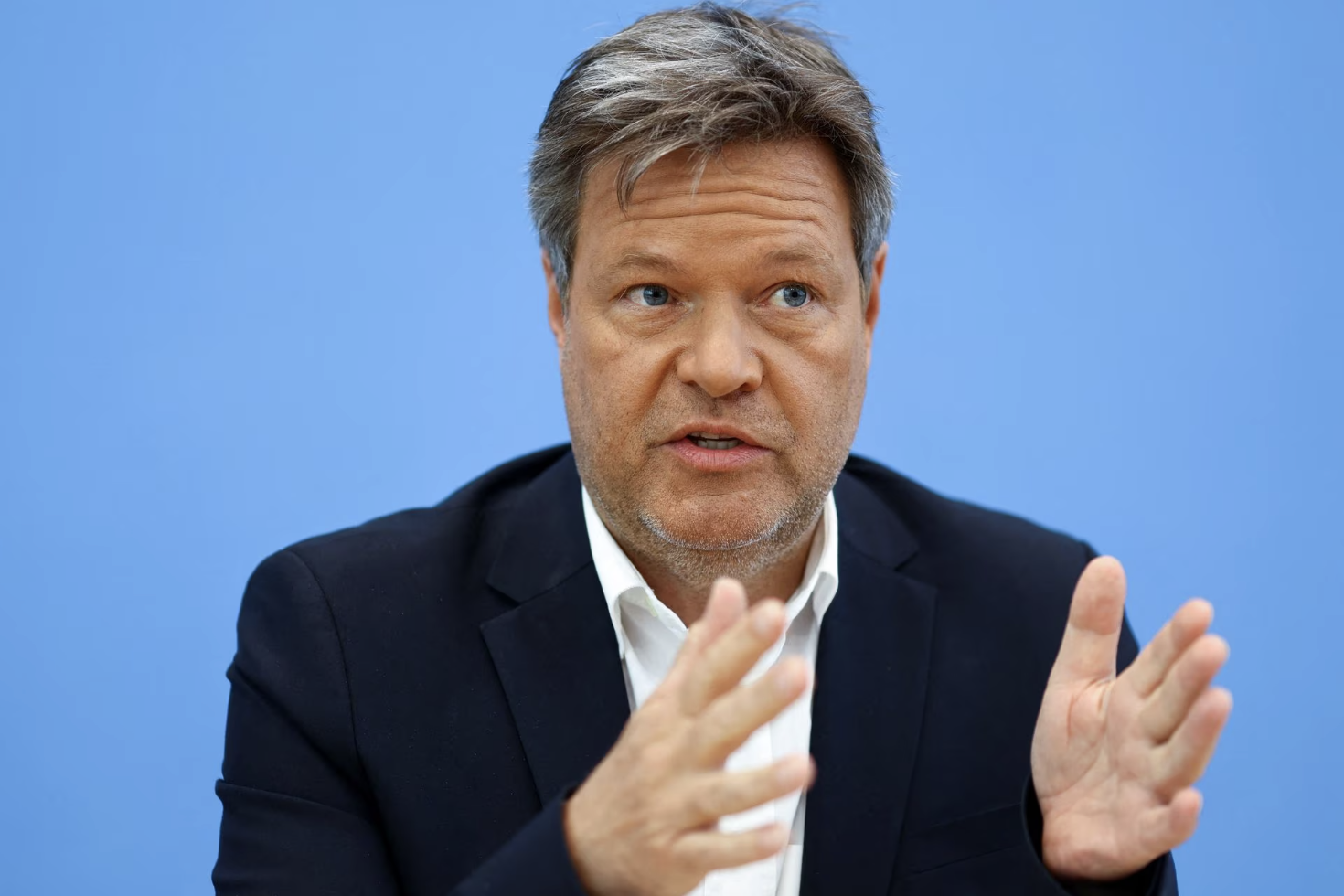Protest Continues in Berlin as Germany Shuts Down its Last Three Nuclear Plants
Members of the "Letzte Generation", Last Generation, protested against the German government's climate policy in Berlin, Germany, Friday, April 21. Source: Markus Schreiber/AP
On Friday, April 21, a climate protest saw hundreds of activists from the group Last Generation gather at a major road east of Berlin, marching through the capital, blocking roads across the city, and protesting against the German government's climate policy that shut down nuclear plants.
Before Friday's march, climate activists, including members from Last Generation, already said on Tuesday that they would stage protests in Berlin to stop the German government's problematic climate policy. The German cabinet has previously approved the bill and relevant plan in an effort to phase out fossil fuel; however, in a contradictory announcement, the same government decided to shut down the last three nuclear plants, implying the EU member's future reliance on coal and natural gas.
In the meantime, the courts in Germany are taking a tough stance against the members of the aforementioned climate activism group, Last Generation, who have repeatedly blocked roads across the country in the past year. During the protest, police had tried to get protesters to move off the major road but eventually agreed to let the march continue along a set route. Last Generation said in the protest Friday that its goal is to stop Germany from using "all fossil fields by 2030 and take short-term measures including the imposition of a general speed limit of 62 mph on highways to cut transport emissions.”
Germany has long been a climate champion among its allies in the EU and has also set to phase out oil and gas heating in the country. Although there are some technical difficulties–for example, many believe the government's plan to install 500,000 heat pumps annually from 2024 to be unrealistic–Germany's cabinet still decided to force the transition to renewable energy.
On Wednesday, April 19, the economy minister announced that the German Cabinet had approved a bill that bans most new oil and gas heating systems from 2024 to cut greenhouse gas emissions. Its image during G7 has also been a climate-focused one. On Tuesday, April 18, Germany said it is expecting a deal to accelerate phasing out fossil fuels to be done at this year's UN climate summit in Dubai. As a part of G7, Germany signed the joint statement during the meeting in Sapporo, Japan, "to accelerate the phase-out of unabated fossil fuels to achieve net zero in energy systems by 2050 at the latest." The German government was looking forward to a deal similar to the one made in Sapporo in the announcement made on Tuesday.
German Economy Minister Robert Habeck in a press conference regarding household heating system reformation. Source: Christian Mang/Reuters
However, the German government's action seems to contradict the climate-driven approach the country has been promoting. Since Saturday, April 15, Germany has begun permanently dismantling its nuclear energy infrastructures.. The plan to close the three nuclear plants– the Emsland, Isar II, and Neckarwestheim II– was to be expected, as the government had announced its plan to phase out nuclear power back in 2011.
According to the plan in 2011, the three plants were initially scheduled to shut down on Dec. 31, 2022. The only reason for the late action is Europe's increasingly constraining energy supply since the Russo-Ukrainian war. The government claimed that shutting down nuclear plants is merely a part of the country's plan to aim for a 100 percent renewable energy system. Yet, many critics point out that the plan will only result in the unnecessary abandonment of valuable clean energy. As Bavarian Governor Markus Soeder responded to the change in energy policy, "While many countries in the world are even expanding nuclear power, Germany is doing the opposite."
The action to shut down nuclear plants means that before renewable energy provides a sufficient energy supply, Germany will be increasingly reliant on coal and natural gas to produce electricity, which might explain the opposition from climate groups such as Last Generation. The group accused the German government of breaching the country's constitution as they believe that the government placed too much of the burden for climate change on younger generations in a supreme court verdict from two years ago. The activists also pointed out that the measure to cut greenhouse gas emissions by former Chancellor Angela Merkel isn't consistent with the Paris climate accord. Germany might have a great vision to move toward a future with renewable energy, but there seem to be many challenges to overcome before then.


